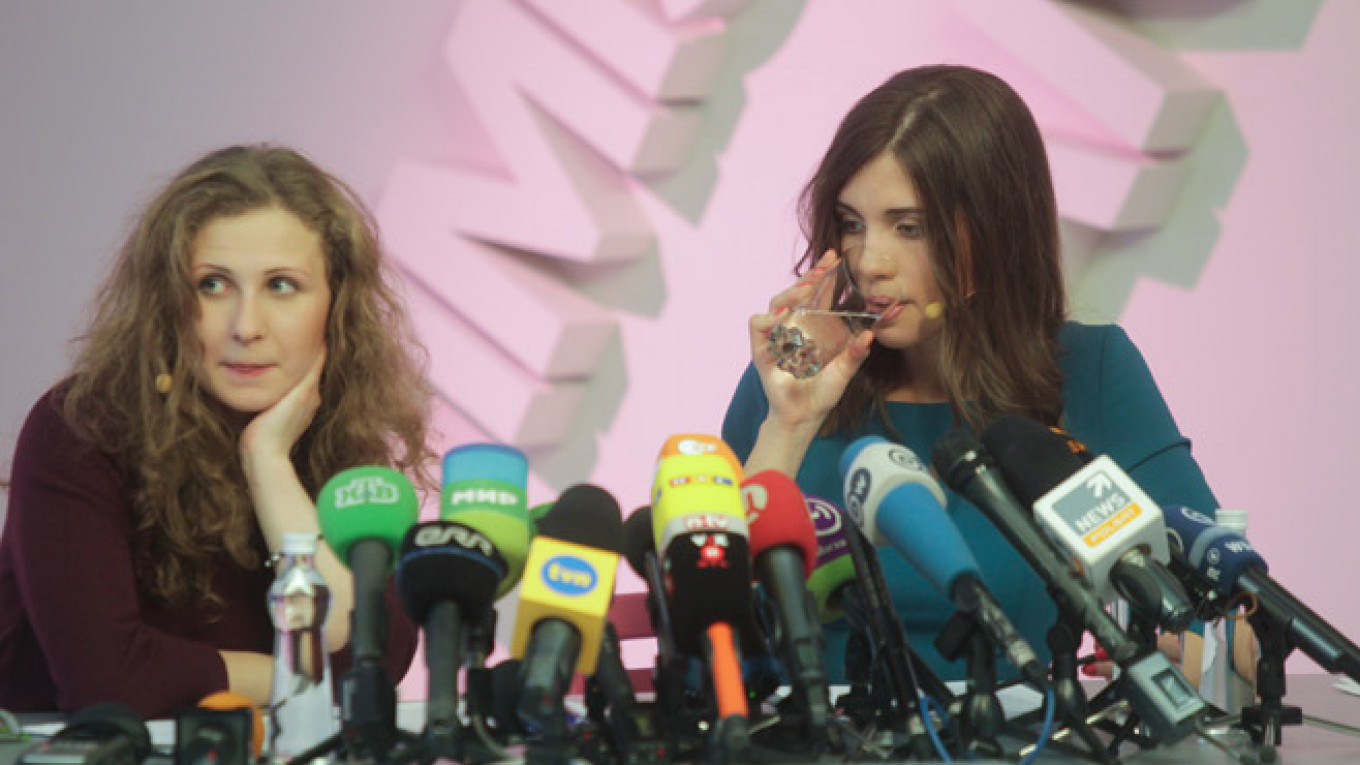Two members of the female protest group Pussy Riot have appealed to the European Court of Human Rights after Russian police failed to prosecute a group of men who attacked them with a whip and pepper spray in front of witnesses last year, a news report said Monday.
Pussy Riot members Nadezhda Tolokonnikova and Maria Alyokhina were assaulted last February by several men wearing traditional Cossack attire as they tried to perform "Putin Will Teach You to Love the Motherland" — a song that mocked Russian President Vladimir Putin — in the Black Sea resort of Sochi, which was at the time hosting the Winter Olympic Games.
Videos of the incident subsequently posted online show the Cossacks — members of a quasi-militant group who now present themselves as guardians of traditional values — using a whip and pepper spray to break up the performance. Another activist, Alexei Nekrasov, was left with a bleeding face after being held facedown on the concrete, while Tolokonnikova's husband Pyotr Verzilov and artist Lusine Dzhanyan were also injured in the attack.
Despite the incident being witnessed and captured on video and the police arriving promptly at the scene, no one was ever prosecuted for the attack itself, though one of the men was fined for disrupting public order, the Vedomosti newspaper reported.
The five victims have now appealed to Europe's highest court with a complaint against Russian law enforcement authorities, who they say failed to adequately investigate the attack against them, the report said.
Pussy Riot rose to prominence in 2012 when Tolokonnikova, Alyokhina and a third member, Yekaterina Samutsevich, were handed two-year prison sentences for an anti-Putin performance in Moscow's Christ the Savior Cathedral.
Samutsevich had her sentenced commuted to a suspended one a month later on appeal, while Tolokonnikova and Alyokhina were freed under presidential amnesty in December 2013 — about two months before they were due for release.
Contact the author at [email protected]
A Message from The Moscow Times:
Dear readers,
We are facing unprecedented challenges. Russia's Prosecutor General's Office has designated The Moscow Times as an "undesirable" organization, criminalizing our work and putting our staff at risk of prosecution. This follows our earlier unjust labeling as a "foreign agent."
These actions are direct attempts to silence independent journalism in Russia. The authorities claim our work "discredits the decisions of the Russian leadership." We see things differently: we strive to provide accurate, unbiased reporting on Russia.
We, the journalists of The Moscow Times, refuse to be silenced. But to continue our work, we need your help.
Your support, no matter how small, makes a world of difference. If you can, please support us monthly starting from just $2. It's quick to set up, and every contribution makes a significant impact.
By supporting The Moscow Times, you're defending open, independent journalism in the face of repression. Thank you for standing with us.
Remind me later.






